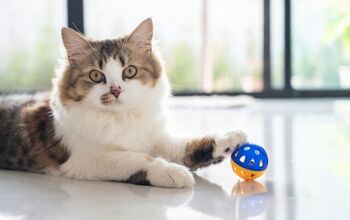5 Tips on Dealing With Aggressive Rabbits

Ideally, rabbits make wonderful pets - fluffy, friendly, goofy, and affectionate companions that are a joy to be around. But these traits will only come to the surface if you work with your pet and offer them a friendly and loving environment to thrive in. Fail to do so, and some negative characteristics might be displayed – rabbits can be straight out nasty in some cases. A lot of different things can influence aggressive behavior in rabbits, but hormones play the foremost role. If your rabbit is not spayed or neutered, chances are that there will be some aggression present. But no worries - here are our most important tips on dealing with aggressive rabbits.
1. Spay or Neuter
As we said, aggression in rabbits can be frequent in bunnies that are not spayed or neutered. If they are not fixed, rabbits can be dominated by their natural hormones, which results in heightened levels of aggression, especially towards other rabbits. Males can get quite territorial – and not only will they mark their area with pee, but they can also bite or physically attack other rabbits and even you. Females are no better when driven by hormones, either, so don’t hope that your fluffy gal won’t scratch or bite if she’s unspayed. It’s easy to see how spaying and neutering can be important and can remove aggression altogether, but it’s not the only benefit – it can also drastically reduce the chance of some severe health conditions, such as cancer.
2. Look for a Source of Pain
On the other hand, if your bunny has been altered on time, but you still notice levels of aggression, try searching for some other underlying cause of their unusual behavior. Perhaps your pet is in pain – rabbits that are hurting can lash out and bite as a method of self-defense. This can become evident when you try and pick them up – if they lash out, there might be a sore leg or a hurt back in question. If you suspect this, book a visit to the vet at once.
3. Socialize and Connect with Your Pet Rabbit
Sometimes, rabbits that were not properly socialized, can become aggressive when you try to handle them. The cause for this is usually fear. Rabbits are prey animals by nature, and will often fear many things. Before you go to pick them up and cuddle them, spend a period getting to know one another, and slowly socializing. Take baby steps and gradually increase the level of interaction. As your pet gets used to you, handling won’t become a problem, and thus aggression stemming from fear won’t be an issue.
4. Reduce the Number of your Pet Rabbits
Sometimes, aggression in rabbits can result from simple overcrowding. Rabbits, mostly males, will get territorial, sometimes even after castration. If you have a number of rabbits all sharing the same space, fights, bickering, and aggression can become common. Females too can be aggressive, especially if nursing their young. Try and limit the number of pet bunnies you are going to have in advance – anything more than three or four can be seen as too much to handle effectively. In case your pets suddenly start to get aggressive with each other, consider housing them in different rooms to limit the amount of contact they get with one another.
5. Find Company for your Pet Rabbit
On the other hand, some rabbits won’t thrive as totally solitary animals either. If you neglect them, spend too much time at work, or are often out, your pet rabbit might develop strange behavioral problems. This is the result of loneliness and lack of interaction. Aggression is one of those problems, as is anxiety. Every creature is social and will require love and company – in whatever form it’s offered. As an owner, you are there to provide that, and if you’re not around enough for your pet to be happy, consider getting them a bunny companion they could play and socialize with while you’re at work.

A proud mama to seven dogs and ten cats, Angela spends her days writing for her fellow pet parents and pampering her furballs, all of whom are rescues. When she's not gushing over her adorable cats or playing with her dogs, she can be found curled up with a good fantasy book.
More by Angela Vuckovic























